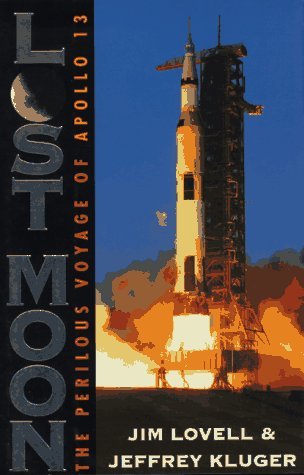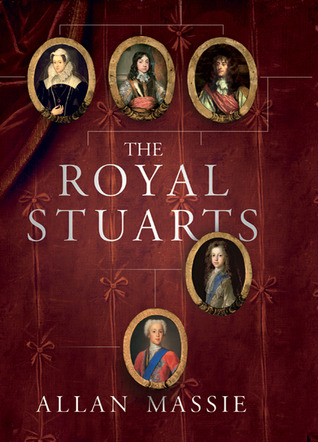Rating: 1.5 Stars
Review:
I don't even.
I can't even begin to explain how disappointed I am in this book and Ackroyd's work here. I am actually kind of angry about this book. Normally he is an author I enjoy, having read several of his other titles (The Thames, Chaucer, etc). I so looked forward to this one as this book literally covered almost my entire interest in England.
What makes this disappointment even worse is how promising it even starts out. It begins with a delightful romp through Roman Britain and Boudicca's destructive power (again I say, Eleanor is so lucky I discovered Eleanor of Aquitaine before Boudicca, and the latter is just a nickname). I even enjoyed most of the bits about those nasty Angles and Saxons who were terribly destructive themselves, but eventually manage to evolve into my dear Anglo-Saxons.
When Ackroyd gets specifically to Alfred, king of Wessex, the Angles and the Saxons - Alfred the Great, my first issue comes to light. While it is generally acknowledged that yes, Alfred's grandson Athelstan is the first king of England (England as a whole, not an island of individual kingdoms - Wessex, Mercia, Northumbria, etc), Alfred's accomplishments can not be overlooked. I mean, come on, he remains the only king to ever be referred to as 'the Great'. Alfred set up the kingdom to become successful and united; had he not beaten back the Danes, encouraged reading, writing and education in general, or written down the laws of the land, England could have taken a very different course. Let's give him a little more credit here. There would be no England without Alfred.
The next big flag came when the death of Edmund Ironside was completely glossed over. When Edmund and Cnut were basically co-kings, and then within a few months Edmund was dead, it is generally thought that he was murdered so Cnut could rule alone. Edmund's two sons, Edward and Edmund, were spirited out of the country and Cnut's reach. While the son Edmund also died, sometime in exile in Hungary, Edward eventually returned to England, the potential successor of Edward the Confessor. However, within a few days of his landing in England, he was murdered, which set the course for the invasion of the Normans and The Conquest by William I. I have always felt like this is an important piece of the puzzle, as at this point England's history could have been drastically altered and the Anglo-Saxon line (albeit with a strong injection of Hungarian, due to Edward the Exile's decades away from home) might have continued for a long time. No Normans would mean no Plantagenets, which in itself would also have been tragic. But that is another story. It confuses me as to why Ackroyd would not present this information, but perhaps I view it as more important than it actually is.
Speaking of Edward the Confessor now, Ackroyd makes a statement to the effect of Edward choosing his successor as he neared death. The king did not choose his successor though, the next king was chosen and anointed by the Witan, so Edward could not leave his crown to anyone as was stated. The Witan chose Harold, so it would not have mattered if Edward has promised William and/or that Harold might have sworn an oath to uphold William's claim.
As we move through the beginnings of the Norman kings right before the Plantagenet dynasty dawns, there is another slew of missing and/or mis-information. Ackroyd seems to accept almost unequivocally that William II's death was an accident, despite his own brother's actions after his death - and that fact that his hunting companion who 'accidentally' shot him reportedly immediately left the scene. Upon learning his brother had been shot on their hunting outing, Henry immediately rode off to secure the treasury - surely a sign that he might have known something? The mishandling of the Norman kings continues with Stephen. Stephen was nephew to Henry I. Henry I had made his nobles swear an oath to support his daughter Matilda as queen, as his only legitimate son had died when The White Ship sank years earlier. Naturally when Henry I died and Stephen claimed the throne, no one argued because England had never had a queen rule and were not about to start. Ackroyd states that Stephen was crowned in 1135 but that it was not until 1139 that Matilda arrived to "claim her country". That is by and far one of the biggest issues with this book - there is no detail or support as to WHY it took so long for Matilda to land on English shores. She was married to Geoffrey, duke of Anjou. It was not as though she was thousands of miles away, she was across the Channel. Some kind of explanation for her actions would have been welcome, instead of just glossing over it as was done with Ironside's death a few centuries earlier. Ackroyd also fails to mention that Stephen had a son, who was passed over in the line of succession for Matilda's son (Henry II) to bring an end to their brutal civil war.
I was tempted to quit when Eleanor of Aquitaine was almost completely whitewashed from England's history. I mean, seriously. She was important, despite Ackroyd's statement of Eleanor "severing herself from the king". In truth she retreated to her own estates as the king became involved with his beloved mistress Rosamund Clifford, then was imprisoned for fifteen years for inciting their sons into rebellion. More than once. As we continue along with the Plantagenets, Ackroyd seems baffled by the fact that King John and Richard III are often associated. My guess would be they are associated often in peoples' minds because they both murdered children to get their thrones. Ackroyd does address the fact that Arthur (Geoffrey's son), John's nephew, was actively campaigning against him and actually besieging Eleanor at Mirebeau when he was captured. At the time Arthur was fifteen, and seeing as how he was active in the battle I see Ackroyd's claim that he essentially became a prisoner of war so to speak when John captured him. The fact remains however, that Richard I had named Arthur as his heir to the throne, seeing as how their deceased brother Geoffrey was older than John (the spoiled baby of the family), and thus had a better claim. Not to mention John was super shady and cruel and not at all fit to be king. So yeah, killing the rightful kings who happened to also be children is what will always link them, no matter how Ackroyd wants to say this was not true in John's case.
I seriously considered quitting a second time when I realized I had made it all the way to the reign of Henry III (John's son) and had not even caught a swift glimpse of William Marshal, the greatest knight in the history of England. I double checked the index just to make sure my eyes were not deceiving me, but sure enough, he is no where to be found.
I am almost tempted to not even bother with reviewing the chapters relating to Richard III. This book was published in 2011, so it is no fault of Ackroyd's that Richard's remains had not yet been discovered (Phillipa Langley wouldn't be bawling her eyes out on national television for a while yet, upon discovering that he did in fact have a crooked spine). However, the problem is he claims such authority, so sure that Richard's remains had been scattered or thrown in the river. He states this as fact, not the speculation they need to appropriately be described as. For example, on page 416 Ackroyd says, "The king, for example, was not a hunchback. As a result of strenuous martial training one arm and shoulder were overdeveloped, thus leading to a slight unbalance but nothing more." Again, while the author could not have known that within a short time the world would know that, in fact, Richard did have a significant curvature of the spine, he certainly could have addressed this more responsibly.
There are some positives here. Despite everything I have said thus far, though overall I was greatly disappointed, there is still some good. While the longer chapters detail what Ackroyd wants the reader to know with his take on England's history, he also includes shorter chapters throughout that deal with daily life on the island, from food, to religion, to dwellings, etc. At first these chapters annoyed me because it made the book feel a bit disjointed, going back and forth from general to specific history. But the more I read, the more I began to enjoy them. However if I had to choose between more details on the kings and queens, or these little chapters, hands-down I would opt for the former. I believe this is the first of four books. If Ackroyd wanted to present a clearer picture of England by including these chapters, perhaps he should have planned to write five books in the series then to make room for all the facts and information he left out.
I feel like I have made my point here with some of the biggest issues with the book. Basically, Ackroyd has taken some of the most interesting pieces of history and condensed them down into little bite sized morsels for popular consumption. The problem with that is that many of these stories are so complex and deserve to be fleshed out to explore all facets. That is how you really get the big picture, really understand how England became England. This is at times sensational and gossipy, ignoring more plausible theories for wild claims (hello, Edward II). It is as though this is a completely different author than I am used to reading. It is disheartening, because I was looking forward to the second book, which of course focuses on the Tudors, as this one concludes with Henry VII's reign. I can by no means recommend this as the first book for anyone to read who does not already have background knowledge, as I would hate for anyone to read this and think it is all accurate. There is a decent bibliography that I plan exploring further to see how Ackroyd came to some of the conclusions that he did. Perhaps then I will better understand his view, and then be able to move on to the second book with a little more ease.







